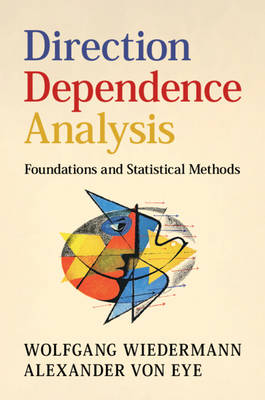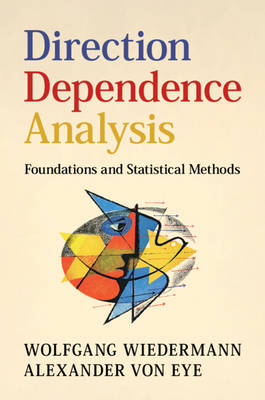
Bedankt voor het vertrouwen het afgelopen jaar! Om jou te bedanken bieden we GRATIS verzending (in België) aan op alles gedurende de hele maand januari.
- Afhalen na 1 uur in een winkel met voorraad
- In januari gratis thuislevering in België
- Ruim aanbod met 7 miljoen producten
Bedankt voor het vertrouwen het afgelopen jaar! Om jou te bedanken bieden we GRATIS verzending (in België) aan op alles gedurende de hele maand januari.
- Afhalen na 1 uur in een winkel met voorraad
- In januari gratis thuislevering in België
- Ruim aanbod met 7 miljoen producten
Zoeken
Direction Dependence Analysis
Foundations and Statistical Methods
Wolfgang Wiedermann, Alexander Von Eye
Paperback | Engels
€ 41,95
+ 83 punten
Uitvoering
Omschrijving
While regression analysis is widely understood, it falls short in determining the causal direction of relationships in observational data. In this groundbreaking volume, Wiedermann and von Eye introduce Direction Dependence Analysis (DDA), a novel method that leverages variable information often overlooked by traditional techniques, such as higher-order moments like skewness and kurtosis. DDA reveals the asymmetry properties of regression and correlation, enabling researchers to evaluate competing causal hypotheses, assess the roles of variables in causal flows, and develop statistical methods for testing causal direction. This book provides a comprehensive formal description of DDA, illustrated with both artificial and real-world data examples. Additionally, readers will find free software implementations of DDA, making this an essential resource for researchers seeking to enhance their understanding of causal relationships in data analysis.
Specificaties
Betrokkenen
- Auteur(s):
- Uitgeverij:
Inhoud
- Aantal bladzijden:
- 388
- Taal:
- Engels
Eigenschappen
- Productcode (EAN):
- 9781009381390
- Verschijningsdatum:
- 14/08/2025
- Uitvoering:
- Paperback
- Formaat:
- Trade paperback (VS)
- Afmetingen:
- 152 mm x 229 mm
- Gewicht:
- 517 g

Alleen bij Standaard Boekhandel
+ 83 punten op je klantenkaart van Standaard Boekhandel
Beoordelingen
We publiceren alleen reviews die voldoen aan de voorwaarden voor reviews. Bekijk onze voorwaarden voor reviews.









